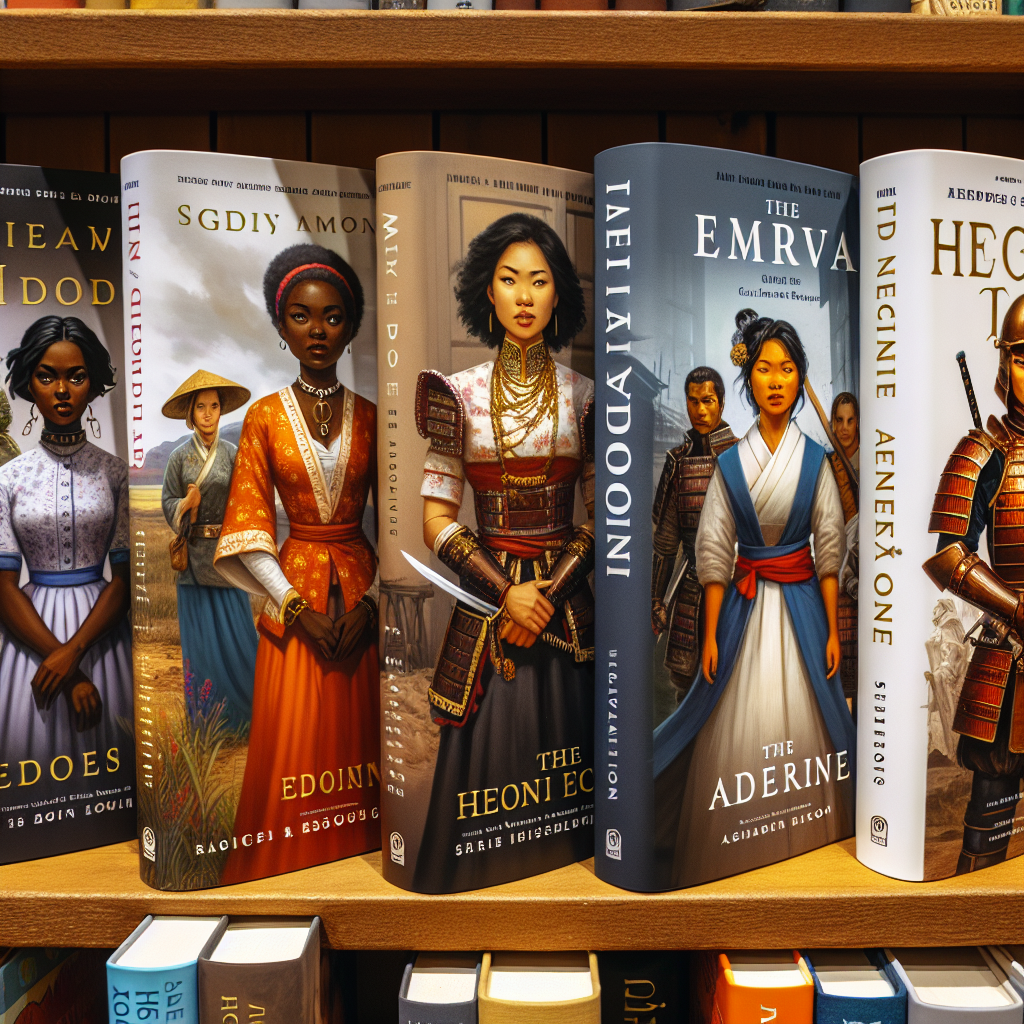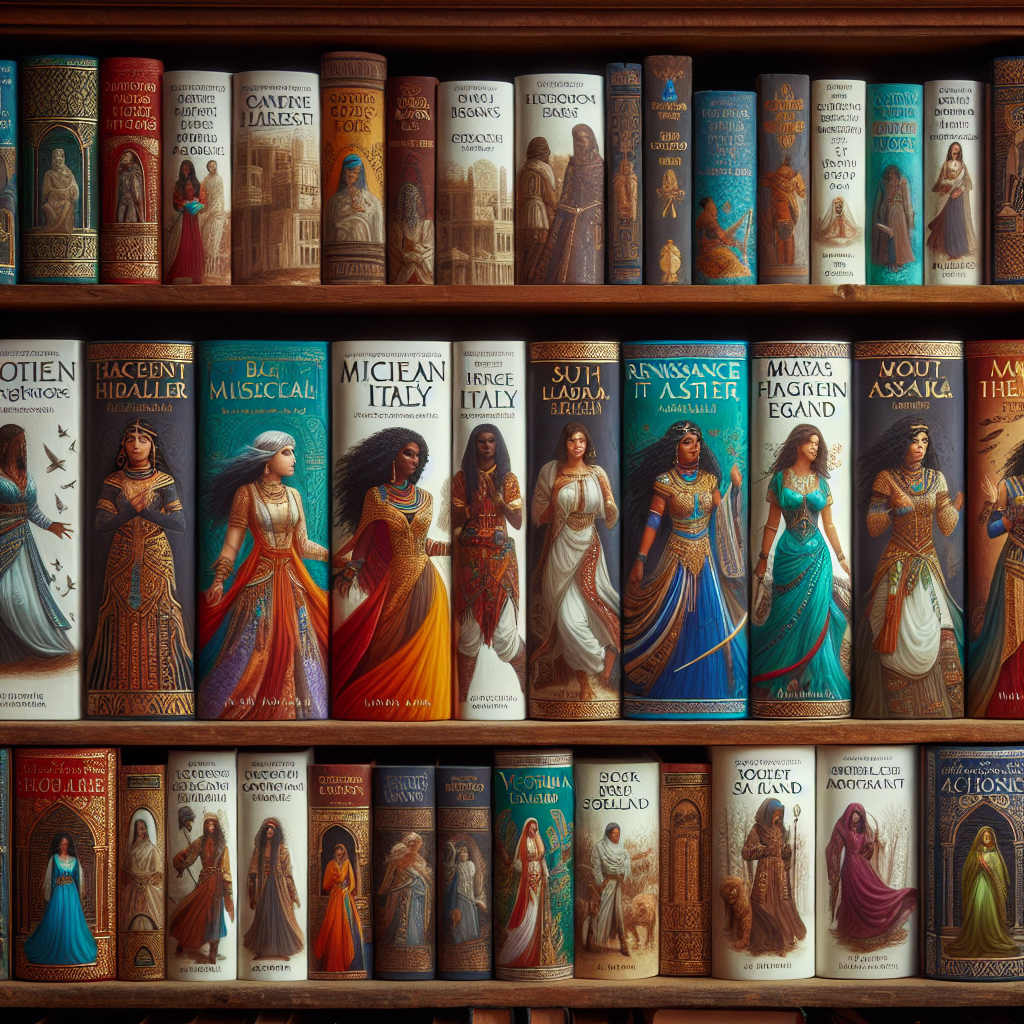As an Amazon Associate I earn from qualifying purchases.
Exploring Historical Fiction Books with Strong Female Leads

Historical fiction offers a unique lens through which we can view the past, blending meticulously researched historical details with the compelling narratives of fictional characters. When these narratives center around strong female leads, they not only provide a riveting reading experience but also offer insightful commentary on the roles and perceptions of women throughout history. This article delves into the world of historical fiction books featuring strong female protagonists, highlighting notable examples and exploring the impact these stories have on readers and society at large.
The Importance of Strong Female Leads in Historical Fiction
Strong female leads in historical fiction serve multiple purposes. They offer readers role models of resilience, intelligence, and courage, often in the face of societal constraints and personal challenges. Moreover, these characters can reshape our understanding of history, highlighting the contributions and experiences of women that traditional historical narratives may overlook. By featuring women who defy their era's expectations, historical fiction not only entertains but also educates and inspires.
Notable Examples of Historical Fiction with Strong Female Leads
Throughout the years, numerous historical fiction novels have introduced readers to unforgettable female protagonists. Here are some standout examples:
- “The Nightingale” by Kristin Hannah – Set in France during World War II, this novel tells the story of two sisters, Vianne and Isabelle, who resist the Nazi occupation in their own ways. It's a tale of survival, resistance, and the powerful bonds of family and love.
- “The Book Thief” by Markus Zusak – Narrated by Death, this novel follows Liesel Meminger, a young girl living in Nazi Germany, who finds solace and empowerment through stealing books and sharing them with others, including the Jewish man hidden in her basement.
- “Alias Grace” by Margaret Atwood – Based on a true story, this novel explores the life of Grace Marks, a servant in Upper Canada in the 1840s who was convicted of murder. Atwood delves into themes of memory, identity, and the treatment of women in the justice system.
- “Circe” by Madeline Miller – A reimagining of the life of Circe, a minor goddess in Greek mythology, this novel presents a powerful narrative of transformation, as Circe defies the gods and discovers her own strength.
Impact on Readers and Society
The impact of historical fiction with strong female leads extends beyond the pages of the novels. These stories can influence readers' perceptions of women's roles in history and the present. By highlighting the achievements and struggles of women across different periods, these books can contribute to a more inclusive understanding of history. They also offer inspiration, showing that strength and resilience are timeless qualities that transcend gender and era.
Challenges in Writing Historical Fiction with Female Leads
Writing historical fiction with strong female leads presents unique challenges. Authors must navigate the historical context accurately while ensuring their characters' actions and decisions are believable for their time. This often involves extensive research and a delicate balance between historical accuracy and the need to tell a compelling, relatable story. Additionally, authors may face the challenge of confronting historical sexism and oppression without alienating readers or overshadowing their protagonist's agency and achievements.
Conclusion: The Enduring Appeal of Strong Female Leads in Historical Fiction
Historical fiction books with strong female leads offer a rich and engaging reading experience, blending the allure of the past with narratives of empowerment and resilience. These stories not only entertain but also educate, challenging readers to reconsider the roles of women throughout history and their own perceptions of strength and agency. As authors continue to explore and celebrate the lives of women in their historical contexts, readers can look forward to more captivating tales of female protagonists who defy expectations, overcome obstacles, and leave their mark on both their fictional worlds and our real one.
In conclusion, the enduring appeal of historical fiction with strong female leads lies in its ability to inspire, educate, and entertain. By bringing the stories of women from the past to life, these novels contribute to a richer, more inclusive understanding of history and remind us of the power of resilience and determination in the face of adversity.
Amazon and the Amazon logo are trademarks of Amazon.com, Inc, or its affiliates.






















































